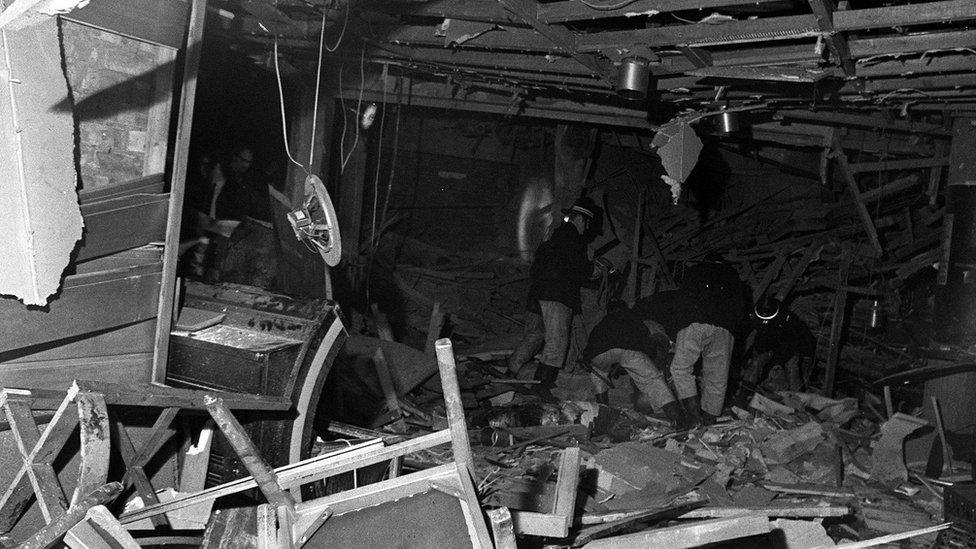Birmingham pub bombings: 'Best of friends were now fighting with each other'
- Published
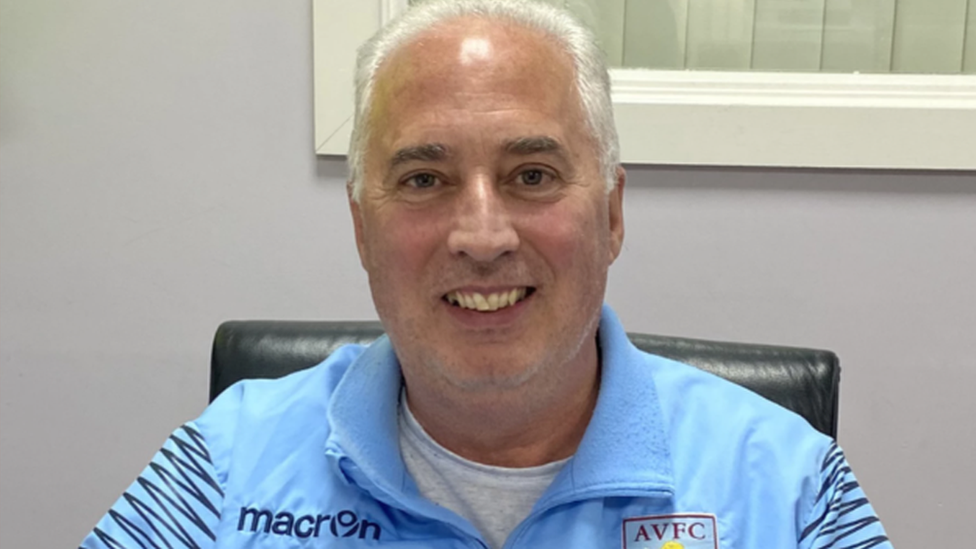
"A lot of people were murdered and injured that night, but my dad died that night as well, but he just didn't know it," Maurice Maloney said
Stories of the aftermath of the Birmingham pub bombings have been recounted for an exhibition.
Fifty years of the Irish in Britain tells numerous tales about people moving to and growing up in the UK, with many affected by the atrocity.
Birmingham-born Maurice Malone said his family had faced discrimination after 21 people died in the two explosions.
The bombings changed everything forever for the community on 21 November 1974.
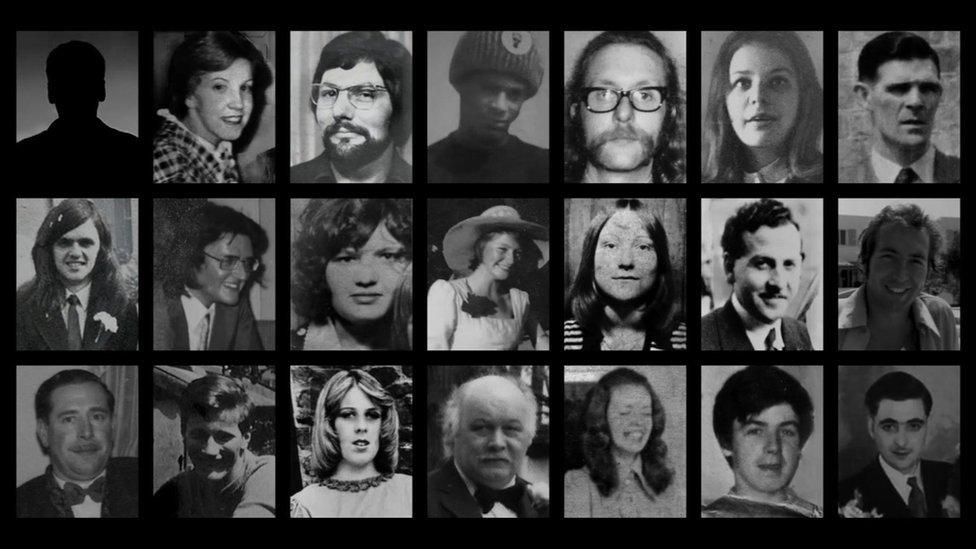
Twenty-one people died when two bombs were detonated in Birmingham in 1974
In his oral story, Mr Malone, chief executive of Birmingham Irish Association, said the following days had been terrible. He was seven years of age at the time but old enough to know what was happening.
"When I looked back at how things happened for my family afterwards, I can more or less track things back to that night and that following morning," he said.
His father was one of several Irish men who lost their jobs at a factory a week later. He was also attacked by colleagues.
"Everyone who weren't Irish who he worked with became enemies overnight - best of friends were now fighting with each other," he said.
He saw marks on his father's face, but his father did not want to tell him what had happened and said he had had an accident. He did not go back to work.
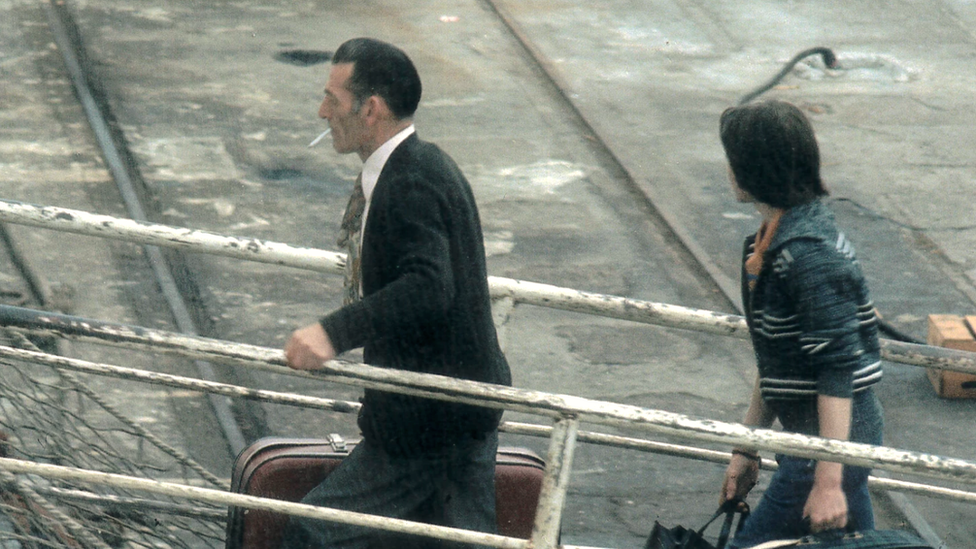
Photos show people leaving for Great Britain in the 60s
"A lot of people were murdered and injured that night but my dad died that night as well, but he just didn't know it," Mr Malone added.
"His life after that just dipped, absolutely. Dad lost his job, lost his income, lost a network of friends... and turned to the drink and everything went downhill from there."
He said his father had never recovered from the hatred and the shame, adding that "the community finished that night".
More than 50 volunteers have helped create the exhibition - Look Back to Look Forward: 50 Years of the Irish in Britain.
It has already visited London, Leeds and Liverpool and is now at Birmingham's Thinktank museum until Sunday.
Notable Irish cultural figures have also contributed including actors Siobhán McSweeney, Adrian Dunbar and Aisling Bea, broadcaster Terry Christian, musician Jah Wobble and Moth Poetry Prize winner Laurie Bolger.
Irish in Britain's chief executive Brian Dalton said: "There has never been a more important time to celebrate our unique history.
"With the invaluable help of countless volunteers and our member organisations, we have faithfully captured the stories and individual histories that have shaped the last 50 years of the Irish in Britain, creating a research and educational legacy for generations to come."
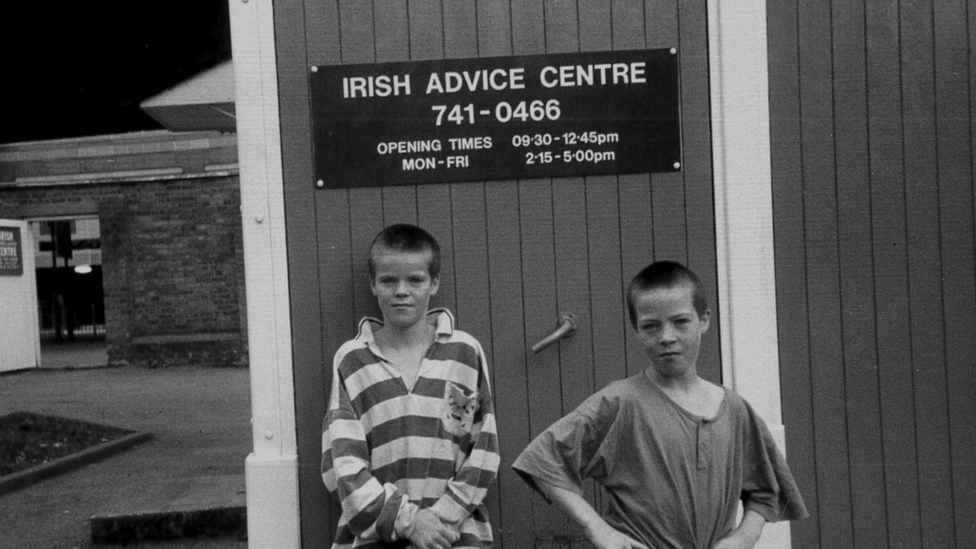
The exhibition runs from Wednesday until Sunday at Thinktank Event Suite

Follow BBC West Midlands on Facebook, external, X, external and Instagram, external. Send your story ideas to: newsonline.westmidlands@bbc.co.uk, external
Related topics
- Published22 August 2023
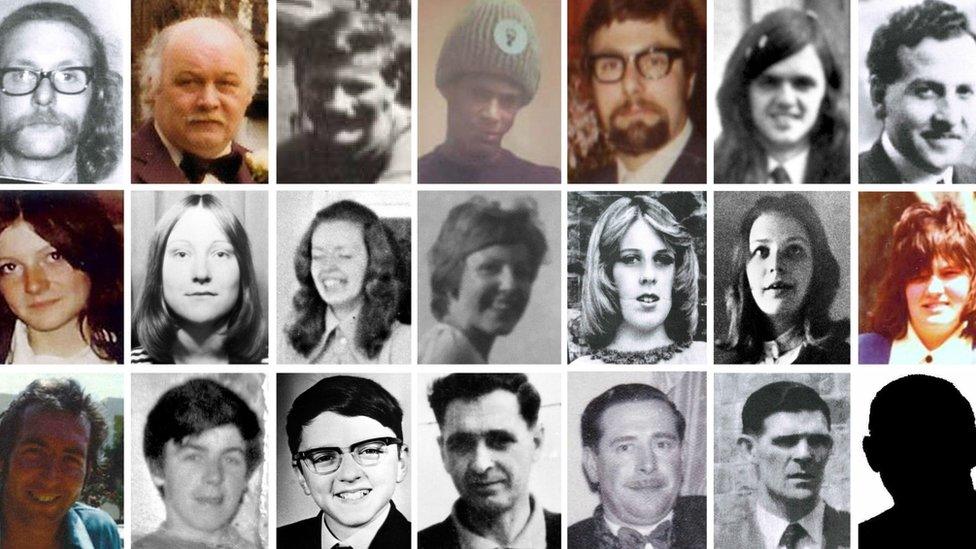
- Published12 March 2019
